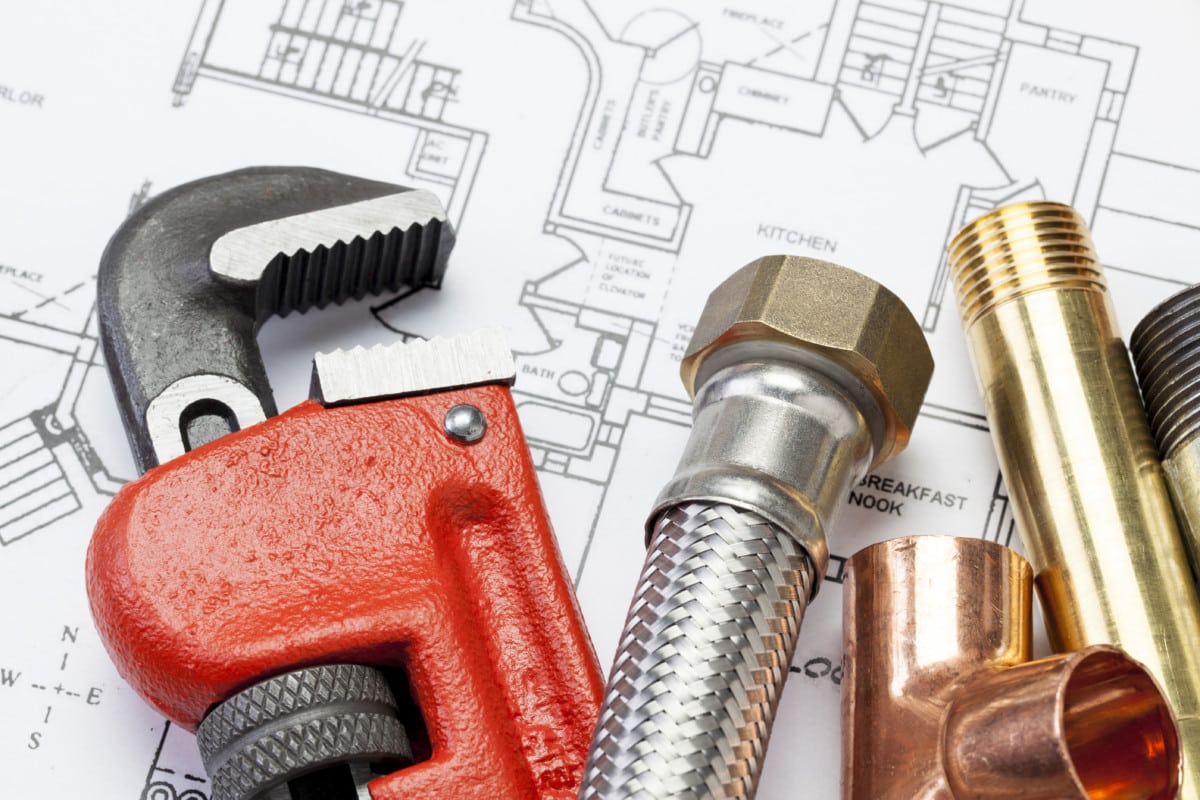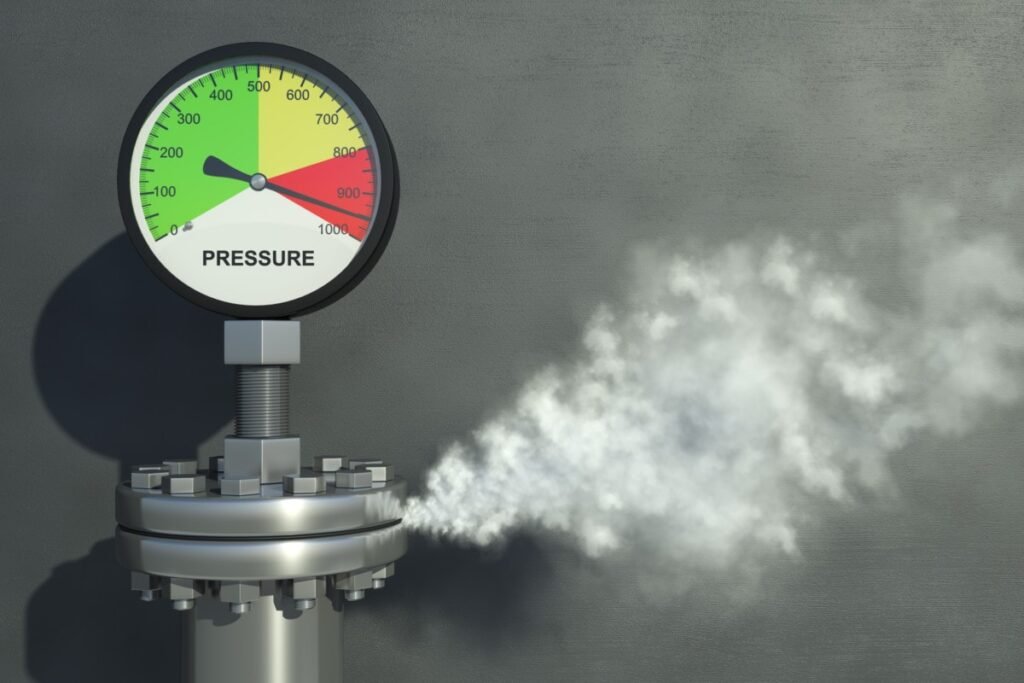Natural gas is commonly used in homes across the U.S., especially in stoves and water heaters. It is an efficient and popular energy source that can help reduce your carbon footprint and increase the value of your home. Homes with gas hookups typically sell for more than those without.
While natural gas is generally safe when used and maintained correctly, leaks can occur, posing serious health and safety risks. Other gases like propane, radon, and refrigerants can also cause problems. Burning natural gas produces carbon monoxide (CO), which can be lethal in enclosed spaces.
Household gas leaks are becoming more common. A 2018 study found that U.S. fire departments respond to an average of 125,000 gas leak calls annually – a 25% increase from 2007.
Due to the danger, it’s important for everyone to be aware of gas leaks, regardless of where they live. Whether you’re a homeowner in Boston, MA, or a new renter in San Antonio, TX, continue reading to learn how to detect a gas leak in your home.
How to detect a gas leak
Gas leaks are dangerous due to the risk of fire, exposure, or explosion. While carbon monoxide (CO) is not caused by a leak, it can accumulate silently when gas appliances are not vented or maintained properly. Identifying the signs of a gas leak is essential to prevent harm to yourself, your family, and your property. Here’s a quick checklist for you.
- Install a gas leak detector
- Smell for rotten eggs
- Listen for hissing sounds
- Look for bubbles outside
- Notice dead or dying plants
- Track gas usage
- Monitor physical symptoms
1. Install a gas leak detector
If you don’t already have them, install a gas leak detector near sleeping areas and in utility rooms throughout your home. These devices are designed to detect combustible gases like methane and propane and alert you before the levels become dangerous.
You can also get a portable gas leak detector that you can take with you. These are relatively inexpensive and quite accurate.
As a last resort, you can create a homemade solution by mixing a teaspoon of soap into a cup of water, pouring it over a suspected gas leak, and watching for bubbles. However, this method should not replace a gas leak detector.
It’s important to note that gas leak detectors do not detect carbon monoxide – you’ll need a separate carbon monoxide detector for that. Installing both types of detectors improves safety by warning you of multiple hazards: Gas leak detectors alert you to combustible gas accumulations, while CO detectors notify you of dangerous carbon monoxide levels.
2. Smell for rotten eggs
Natural gas is odorless in its natural state. To aid in leak detection, utility companies add a harmless chemical called mercaptan, which smells like rotten eggs or sulfur. If you detect this smell indoors, evacuate immediately and contact your gas company or 911.
It’s crucial to remember that carbon monoxide is odorless, tasteless, and colorless.
3. Listen for hissing sounds
Large gas leaks in pipes and appliances can produce a hissing or whistling sound. Check your appliances monthly for any unusual noises.
4. Look for bubbles outside your home
Gas typically enters your home through underground pipes that connect to the local gas main under the road. If there’s a leak underground, you may see bubbling in puddles or soil that appears to be moving. These signs indicate that gas could be escaping from underground pipes and displacing air or water.
5. Notice dead or dying plants
Natural gas leaks can suffocate plant roots by displacing oxygen in the soil. This can result in wilting, yellowing leaves, stunted growth, or unexplained plant death, especially near buried lines or gas meters. Keep an eye on outdoor vegetation near these areas regularly.
6. Track gas usage
Gas leaks can be very minor and go unnoticed for months. In such cases, it’s important to monitor your gas usage. Compare your monthly utility bill to previous months or neighborhood averages to determine if there’s a leak.
7. Monitor physical symptoms
Exposure to leaking gas or its byproducts, especially carbon monoxide, can be extremely dangerous. While checking for physical symptoms should never replace a detector or regular maintenance, it’s important to recognize signs of potential exposure.
Symptoms of exposure include headaches, dizziness, fatigue, weakness, nausea, and irregular breathing. In severe cases, prolonged exposure to carbon monoxide can lead to memory loss, comas, and death. If you experience symptoms of gas exposure, contact a professional or 911 and seek medical attention immediately.

Who to call for a gas leak
If you suspect a gas leak, turn off your electricity and contact a professional plumber, emergency utility maintenance, or 911. Most municipal gas companies have a 24-hour emergency line. Avoid using a landline if you suspect a gas leak, as it can cause a spark, which is extremely dangerous.
Never attempt to locate the exact location of a gas leak – leave that to trained professionals. Exposure to carbon monoxide and methane is hazardous and can result in explosions, physical symptoms, and property damage.
What causes a gas leak?
Gas leaks can lead to fires, explosions, and health issues. Therefore, it’s crucial to understand how gas pipes and appliances develop leaks to prevent them in your home. Here are the five most common causes.
1. Fitting and connection issues
Fittings include pipes, valves, and meters used to transport natural gas from the local gas main to your home. Connections are the points that link different fittings. Poorly installed fittings and connections are common, and even well-installed fittings can develop leaks over time.
2. Corrosion or damage to gas pipes
Gas pipes can corrode over time, leading to leaks. This is a frequent cause of leaks, especially in older homes and infrastructure. In fact, corrosion was the main cause of gas leaks in the U.S. from 2009-2018.
3. Poor appliance maintenance and installation
Gas leaks can occur if your appliances are not installed correctly or maintained. Common issues include damaged or worn-out gas hoses, burners, and poorly fitted seals.
4. Appliance malfunctions
Even new appliances can malfunction with regular use. Malfunctions that affect the normal flow or combustion of natural gas can lead to leaks.
5. Natural disasters or external damage
Weather, construction work, and physical damage can all cause gas leaks. For instance, an earthquake could rupture gas mains, or excavation work might accidentally damage your home’s gas pipes. If your home has recently experienced a natural disaster, checking for gas leaks should be a top priority.
Refrigerant leaks
Also, pay attention to appliances that use refrigerants. Refrigerants often contain gases like freon and isobutane, both of which are harmful. If your refrigerator, A/C unit, or another cooling appliance suddenly stops working, turn them off immediately and check for leaks. Many standard gas leak detectors can also detect refrigerants, but make sure you have one that does.
Furthermore, never attempt to repair your appliances; many states prohibit non-professionals from working with refrigerants due to their hazardous properties. If you detect a refrigerant leak, contact a professional immediately.

How to prevent gas leaks
Preventing leaks is the primary defense for every home. While it may require extra effort, it is crucial for maintaining a safe home. Here are some ways to prevent gas leaks before they occur.
- Ensure your gas pipes are installed by a professional: Improper installation is a common cause of gas leaks in the U.S. When installing a new appliance or upgrading an old system, ensure you hire a certified master plumber.
- Maintain fittings and appliances: Gas pipes and appliances wear out over time. While you can check appliances yourself, it’s best to schedule annual gas maintenance with a master plumber.
- Upgrade appliances: Old appliances are more prone to breakdowns and leaks. They are also less efficient and more expensive to maintain. Upgrading your stove, water heater, or dryer can help reduce the risk of gas leaks.
- Switch to electricity: The most effective and permanent way to prevent gas leaks is to phase out gas from your home. Consider switching to all electric appliances and installing solar panels to offset the higher electric bill.

Final thoughts on gas leak detection
Detecting gas leaks is crucial for maintaining a safe and healthy home. While natural gas is an efficient and increasingly popular energy source, it comes with risks such as dangerous leaks, environmental concerns, and indoor air quality issues.
To detect and prevent gas leaks, make sure to install a gas leak detector and a carbon monoxide detector for added safety. Ensure your pipes, fittings, and appliances are installed correctly and schedule annual check-ups with a professional. If you suspect a leak, turn off your electricity, leave your home, and contact your local gas company or 911. If you want to eliminate the risk of gas leaks, consider Detect Gas Home Leak

